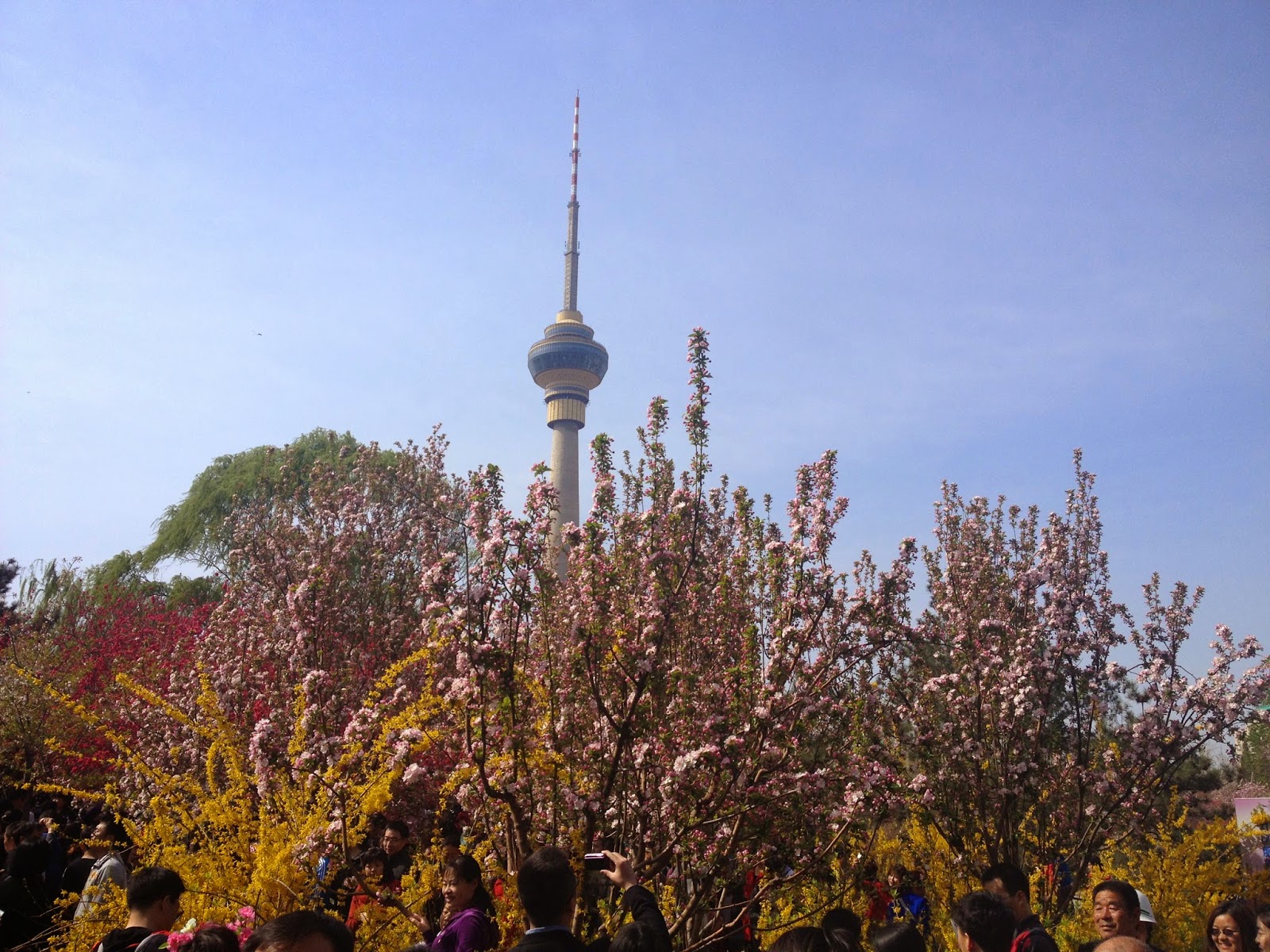My typical Sunday consists of waking up at six in the morning and coming home around seven in the evening. However, I too had the pleasure of not working today. Not because the Chinese are celebrating Easter or the resurrection of Christ, but because today is also a national Chinese holiday known as Tomb-Sweeping Day. (Ironically enough, it has nothing to do with Jesus rising from the dead). The date of Easter in Western countries varies, where as Tomb-Sweeping Day is always April 4th or 5th. It's 107 days after the start of Winter so depending on the Lunar Calendar it's the fourth or fifth day of April.
It's a three-day holiday known as Qingming Jie (清明节) to the Chinese which means "clear and bright." Here is what I
found out about the holiday.
The Origin (according to some website on Google):
It's said Qingming Festival was originally held to commemorate a loyal man named Jie Zitui. Jie cut a piece of meat from his leg to save his hungry Lord, Chong'er, who was forced into exile when his crown was in jeopardy. Chong'er came back to his position 19 years later, and eventually became King Jinwen Gong, forgetting about Jie Zitui. But, later the king felt ashamed and decided to reward Jie Zitui. However, Jie had hidden himself in a mountain with his mother. In order to find Jie, King Gong ordered the mountain to be set on fire to force Jie out. Later Jie was found dead with his mother. In order to commemorate Jie, the Lord ordered the day Jie died as Hanshi Festival. This meant no one could set fires and was also known as Cold Food Festival since there was no fire, there was no warm food.
The next year, King Jinwen Gong returned to the mountain to make a sacrifice to Jie and noticed a Willow Tree had grown at the site so he declared the day after Hanshi Festival to be Pure Brightness Festival (named after the Willow). Later, the two holidays became one known as Qingming Festival.
The Customs (according to some website on Google):
1. Obviously visiting tombs of ancestors and paying respects. Lighting incense and candles, etc.
2. It's also custom to enjoy the Spring sunshine. Take a walk and enjoy the new season, fly kites, play games, etc.
3. Flying kites is a really popular custom. Many people will tie a lantern to them in the night and then cut the kite string to let it fly away.
So, I woke up this morning and thought nothing more of Tomb-Sweeping day than a free day off. I woke up, wrote a lithe, went for a three-mile run, sat outside and soaked up some sunshine. When I came back to my apartment my roomies wanted to go out and enjoy the day so I quickly showered and we all headed down line 1 to Yuantan Park.
It turns out we celebrated Tomb-Sweeping day exactly how were were supposed to. The park was jam-packed, which isn't surprising for a sunny day in China. When the sun is shining, the population of humans nearly doubles. We meandered abound awhile enjoying all the Cherry Blossoms and finally found a grassy spot to relax in.
Jianzi is the Chinese version of hackey-sak played with a feathered shuttlecock. The five of us, all foreigners except Amy, my roommates girlfriend, circle around to play. Within seconds the Chinese are stopping to stare. Foreigners (laowai) are a big attraction in public tourist spaces in China, however, we believe we had so many spectators today because we are all utterly disastrous at Jianzi. People are using their selfie sticks to take pictures with us playing in the background. Eventually, a few locals join us and we realized the key to the game is to just have as many people as possible. We played for about an hour and it was quite the scene and quite the time.
When we got home I wanted to share my photos from the day of course but decided I needed to know what Tomb-Sweeping Day was. I had no idea about the customs and traditions until I came home. It seems it's a holiday for welcoming sunshine and happiness, which we all did.
 |
| Painting ceramics |

 |
| Lotus root |















No comments:
Post a Comment